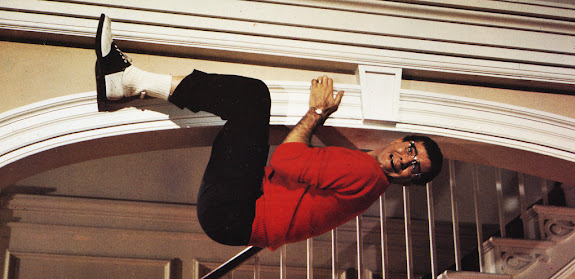She didn’t belong with the hippies. She wasn’t rebelling. She wasn’t stoned. With Anna Karina, you could see the love of life was on her face, even when bathed in a vale of tears.
There seemed to be a Zen-like acceptance of the here-and-now, no yesterday and maybe no tomorrow. Her pursuit of the present was irresistible.
She might dance now. She
might cry or adjust her beret. It was the ‘moment’ and you couldn’t look away.
There was no need for a narrative or three-act structure or character deficits.
There was just Anna.
It was a charmed life (often the gods are kind to those with no agenda)...as if the French New Wave just happened to her. With her pale face and dark eyes, there’s a lightness to her that is ghostly. We see her forever in a school-girl outfit, pleated skirt and sweater: it wasn’t innocence; it was detachment.
In her face
and body and attitude was an expression of the unshakable confidence that comes
with the serenity of freedom: she was
what the 1960s always wanted to be.














